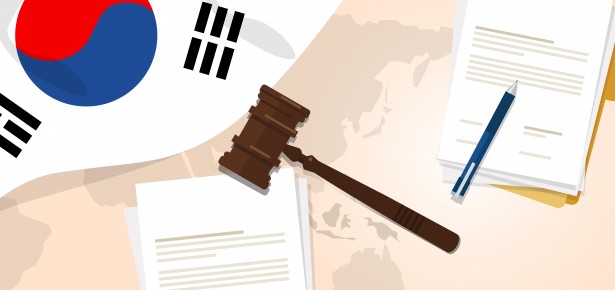
In our world, judicial independence is perennially contested. Threats from the political branch pose obstacles to judges’ ability to perform their constitutional duties. My book, Constitutional Transition and the Travail of Judges: The Courts of South Korea (2019), discusses how courts suffered pressure from Korea’s authoritarian government in the 1970s and the 1980s. In 1973 and again in 1980, Supreme Court Justices were forced to resign for decisions contrary to the wishes of the political leaders. These episodes remain dark pages in Korea’s judicial history.
South Korean politics achieved democratization in 1987 with the promulgation of the free democratic constitution, which is in force today. Since then, the specter of political intervention in judicial decision-making, together with retaliation against judges, has dissipated—until the last several months.
In February, a former Chief Justice of the Supreme Court, Yang Sŭng-T’ae, who had retired in 2017, was indicted on 47 criminal charges including abuse of power and case-rigging. Among his alleged crimes was that he conspired with the administration of the previous President, Park Geun-Hye. President Park was impeached (basically for influence peddling) in March 2017, and was subsequently convicted and is serving a 25-year sentence. One of the deals supposedly concocted between Justice Yang and the Park administration was delaying intentionally deliberation of the case concerning the claims of Korean victims of forced labor during World War II under Japanese colonial rule. In October 2018, the Supreme Court rendered the verdict and ordered the Japanese companies which had employed the workers to pay compensation. This whole question remains a contentious issue today between the Korean and the Japanese governments. Yang has denied all charges.
After President Moon Jae-In came to power in May 2017, prosecutors launched a broad investigation of the judiciary. The new chief justice, appointed by President Moon, promised “full cooperation” with the prosecutors. In March 2019, the government indicted ten judges for collusion with Yang in manipulating the judicial process. One of them was a judge who, only a month earlier, had rendered a guilty verdict against a member of the ruling party. Party leaders loudly challenged the ruling and demanded that the judge be impeached. The prosecutors also sent the Supreme Court a list of sixty-six judges whom they said were under investigation. Among them was Supreme Court Justice Kwŏn Sun-Il, who had written a dissenting opinion in the decision that ordered the Japanese companies to pay compensation. Justice Kwŏn, a conservative member of the Court, avoided indictment, but opposition opinion regarded the incident as a thinly disguised attempt to tame the judiciary.
In Korean history, judicial independence has always been precarious, but this is the first time that both former and incumbent judges have actually been prosecuted and put into jail. It is ironic that political attack on judges is taking place under a government that portrays itself as a true democratic force. During the authoritarian era, although the government pressured judges not to render rulings against it, once decisions were issued, it implemented them without further challenges. No judge was imprisoned on political charges. Against this background, the recent prosecution of judges under the sweeping and vague charges of abuse of power is alarming.
My book argues that the court’s legitimacy depends on its role as the ultimate guardian of the Constitution. Liberal democracy in South Korea is upheld only when judges are allowed, as is written in the Constitution, to decide cases “in accordance with their conscience and in conformity with the Constitution and law.” Anything less will be detrimental to the freedom and liberty of the Korean people.
Latest Comments
Have your say!